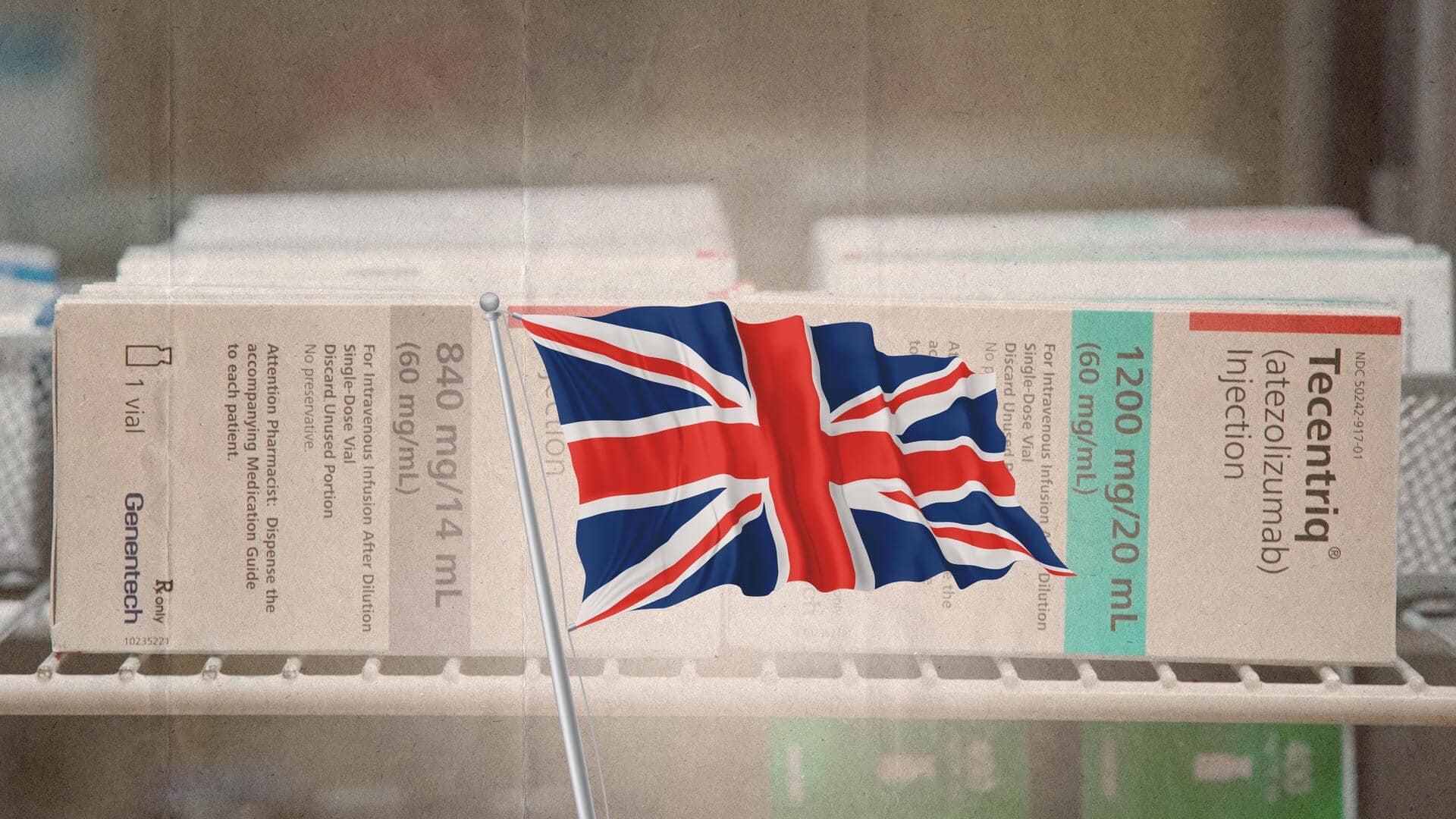
England to introduce world's first 7-minute cancer treatment jab
What's the story
England's state-run National Health Service (NHS) is set to revolutionize cancer treatment by becoming the world's first healthcare system to offer a groundbreaking injection that could significantly reduce treatment time for hundreds of cancer patients.
This innovative approach involves administering the immunotherapy drug atezolizumab through a quick "under the skin" injection.
This could cut treatment durations by up to 75%.
7-muinutes
Green light from England's drug regulatory authority
NHS England has received approval from the Medicines and Healthcare products Regulatory Agency (MHRA) for the same.
The therapy in focus, atezolizumab, also known as tecentriq, has traditionally been delivered intravenously to patients, a process that can take 30 minutes to an hour.
The new "under the skin" injection method is set to slash the administration time to a mere seven minutes.
Cancer care
Unlocking convenience and efficiency
Dr. Alexander Martin, a consultant oncologist at West Suffolk NHS Foundation Trust hailed this approval as a pivotal moment in cancer care and treatment.
"This approval will not only allow us to deliver convenient and faster care for our patients but will enable our teams to treat more patients throughout the day," he said while speaking to Reuters.
Science
The science behind the breakthrough
Atezolizumab, developed by Genentech, a Roche company, is an immunotherapy drug that harnesses the patient's immune system to target and eliminate cancer cells.
Unlike conventional chemotherapy, this treatment empowers the body's natural defenses to seek out and destroy cancerous cells.
With that, this seven-minute jab could offer a more targeted and potentially less invasive approach to battling cancer.
Impact
A transformative impact
The drug is currently used to treat lung, breast, liver, and bladder cancers, offering hope to a wide range of patients.
NHS England estimates that the majority of the approximately 3,600 patients initiating atezolizumab treatment annually in England will transition to the newly introduced injection method.
However, patients undergoing combined intravenous chemotherapy and atezolizumab will continue with transfusion-based treatment.